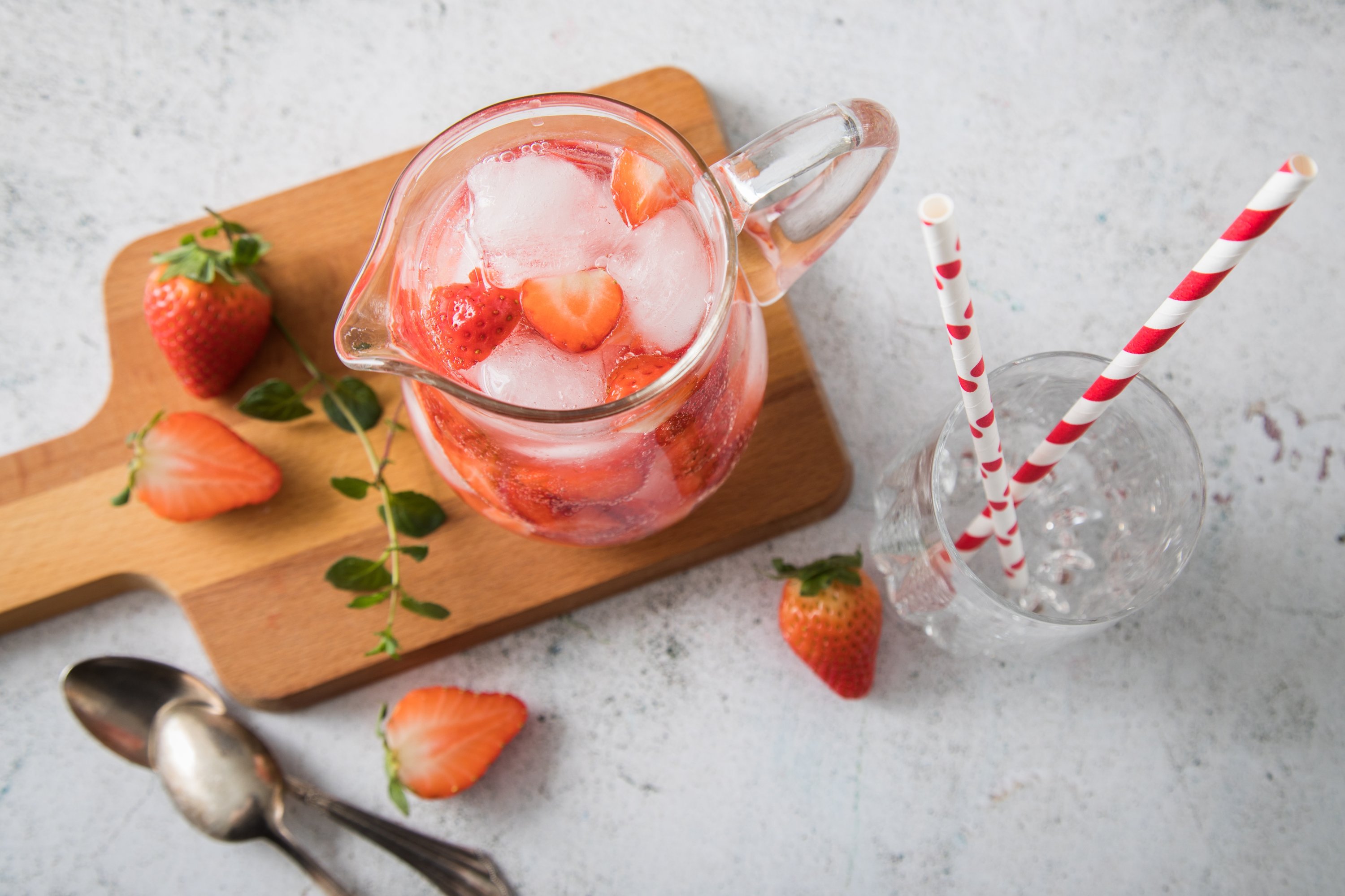© Turkuvaz Haberleşme ve Yayıncılık 2024
While the world is grappling with a global heat wave, it is essential to stay hydrated to enjoy good health and avoid heat-related illnesses according to experts. But it sometimes gets boring and bland to drink plain old water. Therefore, you can flavor your water in an easy and fun way: by infusing it with fruits, vegetables and herbs.
Experts say we should be drinking 1.5 liters of water every day, warning that anything below 1 liter a day is insufficient to replace our needs, particularly when the weather is warm or for those doing strenuous physical activity like sport.
If you want to jazz up your carbonated water or tap water, there are many flavors that will deliver an additional kick.
Try using fruit or herbs – that way you can quench your thirst without any additional sugar or additives that you find in flavored water from the shop.
That helps people who don't generally enjoy drinking water trick themselves into making it an appealing experience, says water sommelier Andre Uhlig.
Flavored water helps people make sure they drink the recommended quantity on a daily basis and some blogs also say there are further benefits including "detox effects." Scientists point out however that research has yet to prove this.
But adding fruit, herbs and vegetables to your jug of water will provide variety and enjoyment, even if you only wind up consuming a fraction of the vitamins and minerals they contain.
When looking to add fruit or vegetables, it makes no difference whether you use tap or bottled water, as both will absorb the aromas and flavors to the same degree.
But bear in mind that if you opt for mineral waters, if it's highly mineralized, that might dominate the taste, overpowering the fruit flavor, says Uhlig. Go for a moderate degree of mineralization, is his recommendation.
Try out adding fruit, pieces of vegetable or herbs depending on what is in season, from oranges to strawberries, then blueberries or apples.
Thoroughly wash the fruit, vegetables or herbs then place them in a jug or carafe filled with water. Slice up any larger fruit or vegetables or pop smaller items like berries straight in as they are.
The longer you leave the fruit and herbs in the water, the stronger the taste and flavor.
Apples, pears, lemons, limes, oranges, peaches, nectarines, strawberries, blueberries, raspberries, blackberries, kiwis, cherries, kumquats, mangoes and melons can all be very tasty additions to water.
Meanwhile if you are considering herbs, why not consider mint, basil, parsley, rosemary, sage or lavender.

However, if you prefer vegetables, consider cucumbers, carrots, celery or beetroot. Meanwhile ginger root adds a lemony, spicy freshness.
There are many more bold combinations you can try, such as cucumber and basil, blueberries with lime and mint, cucumber and rose petals and rose water, if you have it.
Or consider blueberries and rosemary, or mango and ginger. Try peach with vanilla, or lemon with blueberries and mint.
You can give your drink an unexpected taste by adding rose petals, vanilla or cinnamon sticks.
Be careful if you are thinking of adding peel, however, use organic fruit as regular fruit is often sprayed with pesticides that you cannot simply wash off. It is also better if you take citrus fruit that has not had wax applied, which extends shelf life.
If you are adding flavors to your water, then it's best prepared fresh and consumed cool shortly afterward. Don't leave it standing for longer than necessary.
Wash your carafe or jug using washing-up liquid and hot water before you refill it, as sweet fruit in particular provides a perfect breeding ground for microorganisms thanks to the fructose they contain and their high water content.
Once you cut into fruit, that breaks through its protective barrier of skin or peel, enlarging the surface where germs can grow.
If you plan to further enhance your water and add an aesthetic flourish, try lightly crushing rosemary, lavender and rose petals and freezing them as ice cubes.
This will not only look appealing in an attractive carafe or glass jug but the essential oils they contain will also gradually be released, adding fresh intensity to every sip.
For himself, however, Uhlig prefers a simpler approach, with lemon and ginger, or melon and mint as his preferred combinations.
